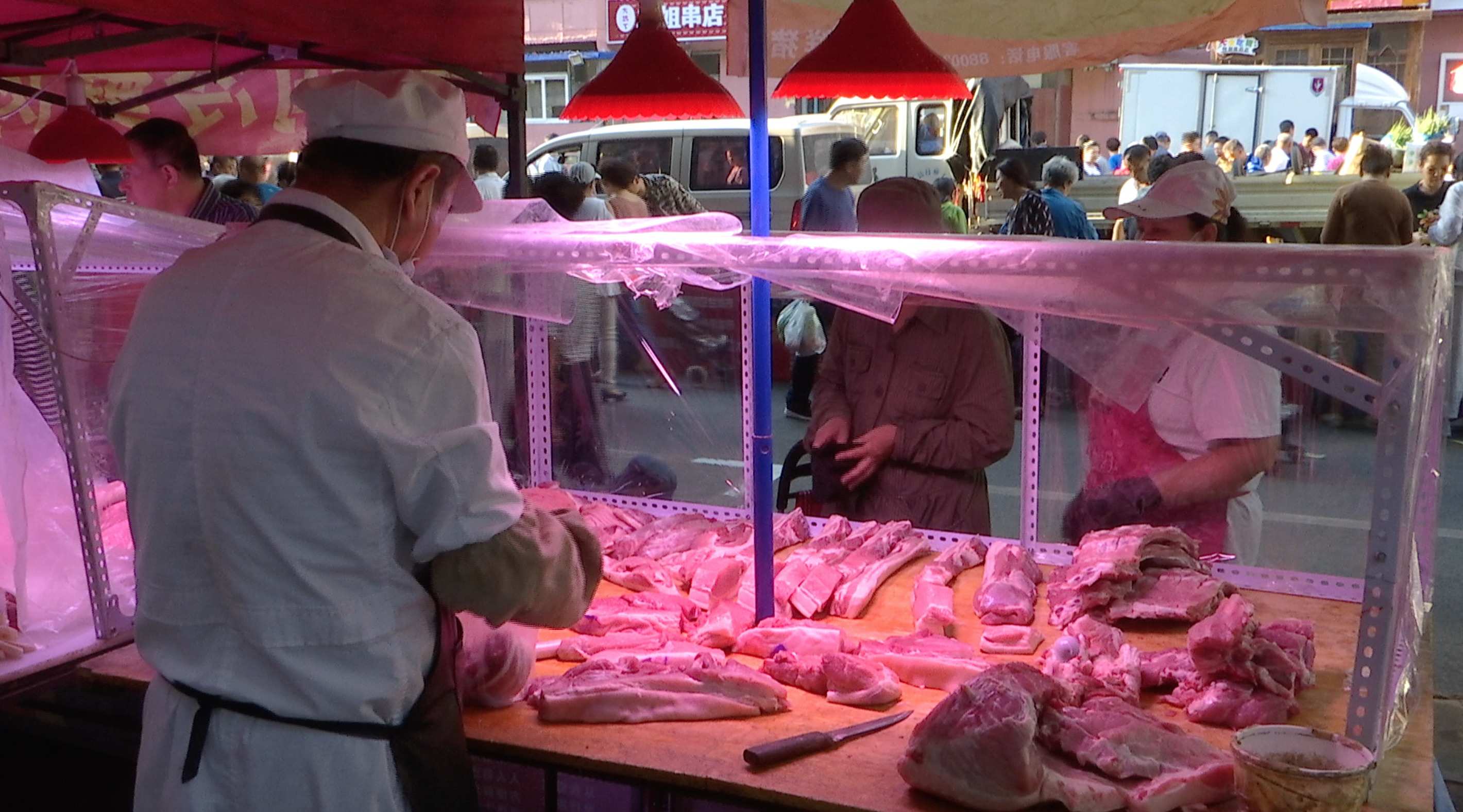
(Photo: CGTN)
Three months since the start of US-China trade friction, the ripple effects on Chinese consumers may not be as bad as previously thought.
A pork vendor in northeastern Chinese City of Shenyang is asking for an extra two yuan, or 30 cents, per kilogram of pork versus two months ago. The vendor suggested that the increase could be traced back to higher prices for soybean pulp based pig feed, but it is not the only reason.
"The swine flu outbreak earlier also pushed up the price -- but that's cooling down now," the pork vendor told CGTN.
China imposed 25 percent retaliatory tariffs on US soybeans on July 6. That pushed up costs for soybean products. Some analysts predict, for each 10 percent increase on soybean prices, products like pork and tofu could see a 1 percent rise.
While effects of the trade friction are ripping into farmers markets, consumer sentiment is still intact. Many Chinese believe the trade friction has not hit their shopping baskets.
"I don't think the trade friction is affecting producers' prices. Not sure if it will affect more expensive goods though," said one consumer.
"I don't believe the trade friction is the main reason for inflated prices on agricultural products. A depreciating Renminbi might affect prices, but not so fast," another added.
On the contrary, US consumer confidence has been slipping. According to the University of Michigan’s Consumer Sentiment Index, US consumer confidence has been in decline -- down five points compared to the first quarter of 2018 -- missing forecasts.
China imposed 25 percent retaliatory tariffs on US soybeans on July 6. That pushed up costs for soybean products. Some analysts predict, for each 10 percent increase on soybean prices, products like pork and tofu could see a 1 percent rise.
While effects of the trade friction are ripping into farmers markets, consumer sentiment is still intact. Many Chinese believe the trade friction has not hit their shopping baskets.
"I don't think the trade friction is affecting producers' prices. Not sure if it will affect more expensive goods though," said one consumer.
"I don't believe the trade friction is the main reason for inflated prices on agricultural products. A depreciating Renminbi might affect prices, but not so fast," another added.
On the contrary, US consumer confidence has been slipping. According to the University of Michigan’s Consumer Sentiment Index, US consumer confidence has been in decline -- down five points compared to the first quarter of 2018 -- missing forecasts.


